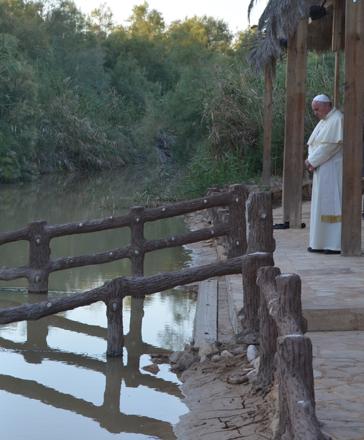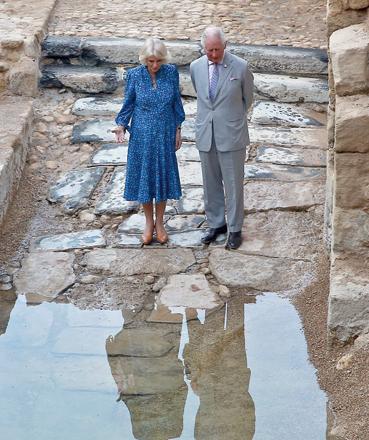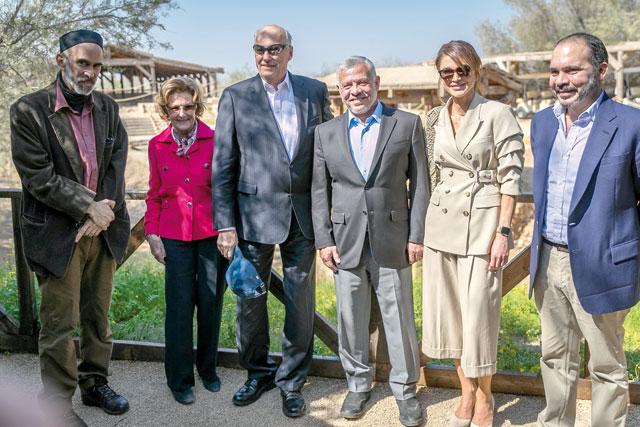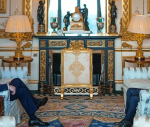You are here
‘An island of peace in the Middle East’
By Michael Kryzanek - May 17,2014 - Last updated at May 17,2014

I had the rare opportunity of recently visiting country of Jordan. Besides the location of some of the great historical sites such as the place where Jesus Christ was baptised along the Jordan River, the most preserved Roman ruins outside of Rome at Jerash, and the mountainside fortress of Aljun built by Saladdin’s soldiers during the era of the crusades, Jordan is also home to the Dead Sea, the lowest point on earth and Petra, the spectacular new wonder of the world.
If you are a history and archaeology buff, Jordan is a must-see, bucket-list destination.
But since my background is in foreign policy and international relations, I was struck by the geopolitics of this country that functions in one of the toughest neighbourhoods in the world. With Iraq to the east, Syria to the north and Israel to the west, Jordan is surrounded by unstable, warring or unfriendly states.
I visited a small outpost on the northern edges of Jordan called Um Qays, which looks out at northern Israel across the Sea of Galilee, the Golan Heights in Syria (now occupied by Israel), and off in the distance, southern Lebanon controlled by the Hizbollah.
Later in my visit to the Baptism Site of Jesus at Bethany along the Jordan River, I looked across the tiny river to Israel where cameras followed my every move and Jordanian soldiers posted guards behind high barbed-wire fences. This was certainly a place of enormous religious significance, but also a stark reminder that political and military considerations trump the New Testament.
There is a natural concern for personal safety when going to the Middle East, but in Jordan I only encountered a people eager to help a visiting American — generous beyond belief and anxious to show off their special country. There was never a time that I was concerned with my personal safety or worried that some sort of dangerous predicament would confront me just round the corner.
Jordanians go out of their way to remind visitors that there is nothing to fear in their country and that the United States remains a friend. The Obama administration has reciprocated with foreign aid support and military trainers to assist Jordanians in this tough geopolitical neighbourhood.
What holds Jordan together in this conflict-ridden region is the Hashemite King Abdullah, the son of the legendary King Hussein. King Abdullah is a modern and modernising king who graduated from Deerfield Academy in Massachusetts.
Monarchies and kingdoms aren’t in the forefront of governing systems in today’s world, but in Jordan, both kings, Hussein and Abdullah, have fashioned a country that has remained an island of stability, tolerance and openness, despite being resource poor and constantly buffeted by the winds of war, hatred and suffering.
This article was printed with permission of the Patriot Ledger
Michael Kryzanek is Executive Director of the Minnock Centre for International Engagement at Bridgewater State University. He contributed this column to The Jordan Times.
Related Articles
AMMAN — Adding Jordan’s Baptism Site to UNESCO’s World Heritage List debunks Israeli claims that the site is on the western side of the Jord
AMMAN — Prince Charles, the Prince of Wales, accompanied by Camilla, the Duchess of Cornwall, on Tuesday visited the Baptism Site of Jesus C
AMMAN — His Majesty King Abdullah and Her Majesty Queen Rania on Tuesday accompanied King Harald V and Queen Sonja of Norway on a visit to t

















